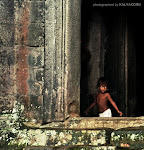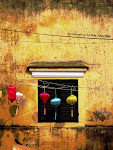 By Kalyakorn Naksompop
By Kalyakorn NaksompopWritten on August 26, 2010
Last edited on September 20, 2010
Many times, when people talk about education, they relate it to the matter of politics and economy, but mostly and most importantly to humanity. This is because education is the “most fundamental building blocks of human development” (The World Bank, 2010). It is a formative process of passing on the knowledge, skills, and values from one generation to the next. An impact of education is greatly. When given the opportunity to learn, people tend to contribute to the development of their lives. Once their lives are improved, people can then contribute to their communities and their countries, which finally affects in the betterment of this world. Therefore, it is essential to look at this matter on a global context because “Education is the most powerful weapon which you can use to change the world,” Nelson Mandela (GCE, 2010).
Realizing that education is about the future, international groups who have been working on issues relating to humanities, such as UNESCO and Campaign for Global Education, seem to target at campaigning for improvement in education. They believe that education can be used as an instrument to end poverty and to improve human’s well being and that “every human being should have the opportunity to make a better life for themselves” (UN, 2010).
 Because education is about improving lives, the number one goal right at this moment is to end hunger, which links to another most recognized goal in education that I found very exciting, the global primary education. This goal targets at ensuring that everyone will be able to complete the basic education of primary school. One of the biggest concerns when it comes to an issue of humanity is the literacy. When one can read, one has more choices in life. This means that it opens more doors for the poor to break out of their poverty. Another concern is about the well being. Schooling doesn’t only mean the opportunity to learn how to read and write, but also to learn about how to improve own life because it “helps children develop the skills they need to make themselves heard in the world and to make positive changes in their lives” (Oxfam, 2010). For example, children who have completed primary school are less than half to likely contract HIV as those who have not (UN, 2010).
Because education is about improving lives, the number one goal right at this moment is to end hunger, which links to another most recognized goal in education that I found very exciting, the global primary education. This goal targets at ensuring that everyone will be able to complete the basic education of primary school. One of the biggest concerns when it comes to an issue of humanity is the literacy. When one can read, one has more choices in life. This means that it opens more doors for the poor to break out of their poverty. Another concern is about the well being. Schooling doesn’t only mean the opportunity to learn how to read and write, but also to learn about how to improve own life because it “helps children develop the skills they need to make themselves heard in the world and to make positive changes in their lives” (Oxfam, 2010). For example, children who have completed primary school are less than half to likely contract HIV as those who have not (UN, 2010).Though the world recognizes the significance of education, the reality is not that simple. Logically, every single person in this world should have accessibility to schooling. However, 771 million adults worldwide are illiterate while 72 million children in the world’s poorest countries are still out of school (Oxfam, 2010). Clearly, this is why global primary education is one of the most targeted goals for many international NGO's.
Another problem that has been ongoing since we could probably remember is gender equality. Yes, even in education is no exception. Hence, women around the world, especially those in poorer countries, tend to have less power, money, and access to education and they are “more likely to live in poverty, simply because they are women” (ActionAid, 2010). It is true that the gaps between girls’ and boys’ enrollment have been closing, yet the issue of discrimination against women is still obvious (UNFPA, 2003).
Comparing to men, nearly twice as many women over age of 15 in least developed countries are illiterate while two-thirds of children who are out of school are girls (UN, 2010). The real challenge is probably to change the perception that women do not need education, simply because they do. Every human being, despite their race, gender and belief, deserves equal rights. Thus, this problem is still there. This is why it has been recognized and has become another goal for future with education, which is to reduce gender disparity and to empower women.
Another interesting Millennium Development Goal directly deals with the environmental problems. The topic of environmental sustainability has been widely discussed in recent years, probably due to the uncommon natural disasters that have occurred more frequently lately. This has raised serious awareness among people around the world as more people are being hurt and damages are being seen as the result of decades of exploitation of natural resources. Often, the people who get affected the most are those who are already vulnerable, which are the ones who depend on natural resources for their livelihood (UN, 2010).
Though this issue seems to be less related to humanity, as the others are directly about reaching out with education and health care, the issue of sustainable practice is actually about improvement and development of what we have, which eventually ties up the issue of well-being of the entire humans. Therefore, this problem is undeniably also about humanity, which is why it is recognized as one of the Millennium Development Goals. Hence, because “reducing poverty and achieving sustained development must be done in conjunction with a healthy planet” (UN, 2010), it is crucial that the future education integrates the principles of environmental sustainability into country policies and programs and reverse the loss of environmental resources.
The interesting part is that all of these goals, including the rest in the Eight Millennium Development Goals, are set to be achieved within 2015 and this is already 2010! We only have 5 years left. Will we be able to accomplish?
Personally, I don't really care about what year these goals will accomplish as long as they do. However, the significance is how many countries agreed with these Millennium Goals, which means that the world (well, at least the authorities anyways) have promised to do something, and we are not even half way there. The question is do we really care about education? Do we really care about the future? Do we really care about other people? We know that we cannot leave this matter only to the authorities because we have and no progress has really been seen. So, maybe it's time that we should really step forward and take some actions?
.............................................................
REFERENCES
ActionAid (2010). What we do: Ending Poverty. In ActionAid website. Retrieved on August 23, 2010 from http://www.actionaid.org.uk/100004/what_we_do.html
GCE: Global Campaign for Education (2010). In GCE Retrieved. Retrieved on August 23, 2010 from http://www.campaignforeducation.org/
Oxfam (2010). Education. In Oxfam International. Retrieved on August 23, 2010 from http://www.oxfam.org/en/campaigns/health-education/education
The World Bank (2010). Education. In The World Bank education. Retrieved on August 23, 2010 from http://bit.ly/d5O5rq
UN: United Nations (2010). In End Poverty 2015 Millennium Campaign, the UN Millennium Campaign. Retrieved on August 23, 2010 from http://www.endpoverty2015.org/
UNFPA: United Nations Population Funds (2003). State of World Population 2003. In UNFPA, United Nations Population Funds. Retrieved on August 23, 2010 from http://www.unfpa.org/swp/2003/swpmain.htm
Wikipedia (2010). Millennium Development Goals. In Wikipedia, the free encyclopedia. Retrieved on August 23, 2010 from http://en.wikipedia.org/wiki/Millennium_Development_Goals


.jpg)

.jpg)
.jpg)




